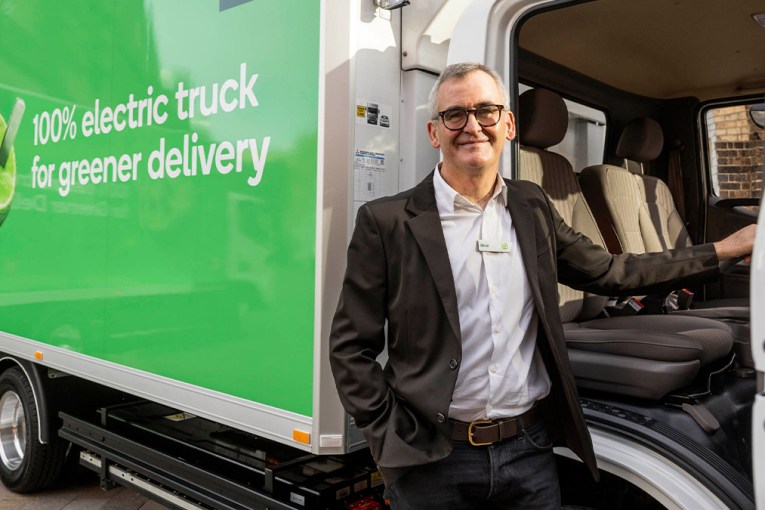Millions of Australians missing out on superannuation, amid rise of gig economy

Australia's $2.5 trillion superannuation retirement savings pool is one of the largest in the world. Photo: ABC
Millions of workers are missing out on superannuation or failing to gain enough superannuation to secure a decent retirement, sparking calls for the entire system to be overhauled.
By law, employers in Australia must pay superannuation to any employee who earns more than $450 a month.
But 1 million workers in Australia are classed not as employees, but as independent contractors, and for the most part are ineligible for compulsory superannuation.
Low-paid workers falling between the cracks
The number of people outside the scope of the compulsory system is accelerating with the rise of apps such as Deliveroo and Uber, which construct their businesses as third-party services connecting the “self-employed” with customers.
“I think it’s a huge problem, and I think we’re not dealing with it now,” Associate Professor Sarah Kaine, a gig economy specialist at the University of Technology Sydney’s Business School, told Four Corners.
“While that might be OK temporarily, it’s going to come back and bite us in five, 10, 15, 20 years as people who have relied on freelance work, gig work, come to retire.
“Then that societal risk, if you’d like, that we’ve accepted allowing this kind of work, comes back to those of us who’ve been paying tax, comes back to those who will be paying tax who’ll have to bear the burden without enough superannuation.”
The Financial Services Council, a lobby group for the investment management industry and superannuation funds run by banks and other financial institutions, wants the Federal Government to have a Productivity Commission inquiry into the implications of the gig economy for superannuation.
“For superannuation to be a successful piece of public policy, which it has been to date, it’s got to be flexible enough to enable people in the gig economy to have sufficient money for retirement,” Financial Services Council chief executive officer Sally Loane said.
“We can’t let people fall between the cracks.”
“From what we understand, being paid superannuation in a gig job is extremely rare,” Ms Kaine said.
“Largely because gig workers have been intentionally classified as ‘not employees’, so independent contractors, or entrepreneurs, or freelancers, often deliberately to avoid such responsibilities or superannuation on behalf of the organisation.”

Many low-paid workers are not accumulating enough super for a secure retirement. Photo: ABC
An influential player in the superannuation industry and the union movement is now calling for compulsory superannuation contributions to be extended to all workers, including those in the gig economy.
“The whole idea was that we needed a universal system. It’s not universal right now. Millions of workers are falling between the cracks of the superannuation system in this country,” Tim Kennedy who chairs one of Australia’s oldest industry super funds, LUCRF super, and is the national secretary of the National Union of workers, told Four Corners.
“We need a situation where no matter how you’re engaged as a worker, no matter what the employer called you, that every hour you work, for every day you work, superannuation should accrue to you.
“That’s important. That must happen for it to work. If you are a worker, you should be paid super. Full stop.”
Mr Kennedy argues the entire design of the superannuation system needs an overhaul because superannuation is failing vulnerable workers who need the most help to save for retirement.
‘This was never a welfare measure’
Former prime minister and treasurer Paul Keating, who played a key role in devising and establishing Australia’s superannuation system, bristled at the suggestion that the system was inequitable and should be changed.
“This this sort of idea that, you know, ‘Oh, superannuation’s a great play against the ordinary people for the wealthy.’ It’s just not true,” Mr Keating said.
“As the author of the system, let me say with all authority, this was never a welfare measure. It was always a complimentary savings measure for middle Australia. Let’s say workers on between $65,000 and $130,000.
“The most fruitful pathway is that for categories of workers on lower incomes, they get a payment off the budget, which I established right at the get go.”
Many workers are not receiving the superannuation they are owed because of widespread failure by employers, particularly in the small business sector, to fulfil their obligations to pay compulsory superannuation contributions.
Companies fail to pay about $3 billion in superannuation entitlements to employees a year, according to analysis by the Australian Taxation Office, which has responsibility for collecting unpaid super.
Another study, from Industry Super Australia, put the figure at $5.6 billion with nearly 3 million employees missing out.
“I think it’s mind boggling really, when you consider that superannuation is meant to be a guaranteed right,” Ms Kaine said.
“The fact that we have such poor compliance is really absolutely astounding.”
-ABC








